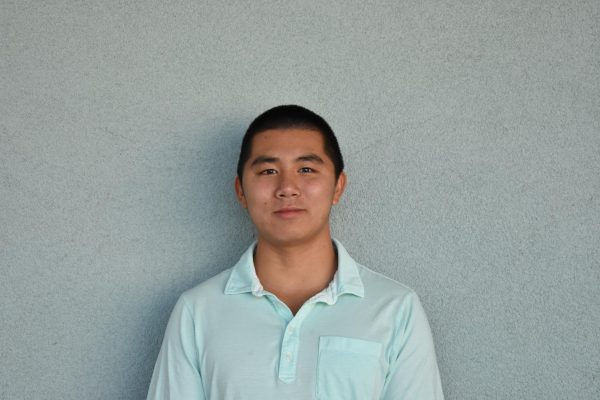Unexplored courses offer unique learning opportunities
From Culinary Arts to Interior Design, it may seem like Gunn offers classes about everything under the sun. Just a quick glance at the course guide reinforces this idea and offers an insight into the vast amount of courses. However, as students are naturally inclined to select courses based on reputation, certain courses are often overshadowed by others. Even if students are interested in the course name and description, a lack of information about the course may scare them away from selecting it.
The Ethnic Studies course, listed on the catalog for over a decade, failed to generate enough student enrollment to run until last year. Ethnic Studies teacher Jeff Patrick believes his class is for students who want a broader look at the world than what is offered in traditional social studies courses. “What’s unique about it is the focus on the history of different ethnicities,” Patrick said. “The United States History and World History classes mention them, but it’s the sole focus of this class, allowing us to delve into it a little more deeply.” Students who choose to take Ethnic Studies will not only learn about the past of historically underrepresented groups, but become equipped for their future as well. “We’re all living in a society, and the better we can understand how it works, the better we are going to thrive,” Patrick said. “American society is very multicultural and diverse, and it’s useful for students to know the background of historically underrepresented or oppressed groups.” For students worrying about rigid curricula, the Ethnic Studies course can be a liberating experience. “There’s a lot more latitude to shape things towards what students are interested in,” Patrick said. “There are opportunities for more projects and students to investigate topics they choose. There isn’t a set list of projects and activities in the same way as an economics class or contemporary world history class.” Above all, this class goes beyond the historical facts and dives deeper into cultural impacts. “The purpose of the course is to help us understand both the contributions and challenges that these various groups have faced,” he said.
The Works of Shakespeare English elective hasn’t garnered enough student enrollment in recent years to run, but English teacher Paul Dunlap is looking to change that. “You don’t have to know anything about Shakespeare,” he said. “People who think they know something always learn something, and people who think they’re afraid of it surprise themselves by how much they understand it.” Unlike other English classes where reading novels is the norm, The Works of Shakespeare covers works intended for the stage. “We integrate watching as much as possible because Shakespeare was meant to be heard and seen,” Dunlap said. “We do comedies and sonnets as well as histories and tragedies—I like showing people that his work is broader than just ‘Romeo and Juliet’ or ‘Macbeth.’”
I would recommend students take a chance if something sounds interesting, even if they’re not sure or if it sounds like it might be challenging.
— Paul Dunlap
Dunlap believes that low enrollment in the course is due to the lack of familiarity underclassmen have with him. “I’ve taught very few underclassmen in a while, so if none of them know me, they wouldn’t sign up for the class just based on my name,” he said. Dunlap also hypothesizes that a fear of Shakespeare ingrained in some students makes them apprehensive about taking such a course. “If their exposure to Shakespeare is very minimal, it might feel too daunting to sign up for a whole class about it,” he said. Dunlap encourages students to not be afraid to take risks with course selections. “I would recommend students take a chance if something sounds interesting, even if they’re not sure or if it sounds like it might be challenging,” he said. “If there’s any interest at all, what a great opportunity to sign up for it.”
Positive Psychology is a course that tends to be overshadowed by other seemingly similar courses such as Psychology and AP Psychology. Nevertheless, Positive Psychology teacher Tarn Wilson advocates for its distinction and continuation as a class. “Positive psychology is a subset of psychology,” Wilson said. “Psychology covers the history of and major historical trends in psychology. It also focuses on mental disorders of various kinds, whereas positive psychology focuses on the science of wellness.” Wilson explained that Positive Psychology is unlike other courses in that the majority of the class is used to practice methods that reinforce what is learned. “Martin Seligman in the 1990s felt there was a gap in psychology, and that we need to study what makes people well and not just what makes people unwell,” Wilson said. “We learn about the science-backed principles that make people well, but the main part of class involves practicing them, whether that be practicing gratitude or random acts of kindness or making sure we build fun into our lives.” Especially at Gunn, Wilson believes that the study of positive psychology is essential not only for maintaining mental wellness, but overall academic achievement as well. “Gunn teaches a lot of skills in developing the mind and intellect, but we as beings have a mind-body connection,” Wilson said. A lot of us culturally in Silicon Valley are very disconnected from our bodies and from our emotions. Our physical, mental and emotional health are very connected to our academic success, but we separate them out.”
Your donation will support the student journalists of Henry M. Gunn High School. Your contribution will allow us to purchase equipment and cover our annual website hosting costs.

Senior Victor Dang is a news editor for �鶹��ӳ��� and has been on staff since August 2022. When not doing schoolwork, he loves springboard diving, being...


